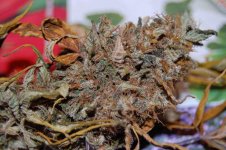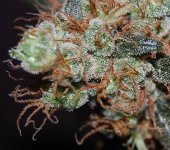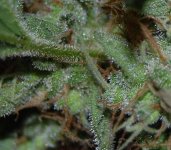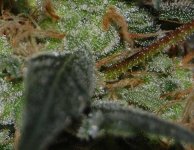Brother Subs is fighting cancer right now so I will have to help you out.
Yes he uses P it is in the bone meal.
At different stages of growth requires different ingredients. I like you use alot of EWC. It is just the way I grow my plants. I like to add as much active bacteria to my teas as possible and EWC has a minute amount of nutes and will never burn your plants....even seedlings. Mollasses is best used in lesser amounts. 1 to 2 TSP per gallon. B! mix is to be used with unfortified soil mixtures. Subs fortifies and supplements with teas for the active bacteria. I also do the same. I do not feed the plant but instead feed the soil with bacteria that breaks down the nutrients in the soil to feed the plant.
I hope I have answered all this for you. If I have missed anything please feel free to ask again.
V-man
Thanks for the help V-man. I'm sincerely sorry to hear about Suby.
The reason I asked if Subs uses P in veg is because beside the bone meal it says flowering mix only. In both quotes Suby said he waters with a tea every watering and one had kelp and the other didn't. Just wondering.
Can i substitute alfalfa meal for blood meal and if so do i use the same ratio 1TBS/Gal?
Thanks again V-man really appreciate the help.
Ninja








 and I'm asking you guys to pander to me too much - but any help is hugely, massively, gigantically appreciated.
and I'm asking you guys to pander to me too much - but any help is hugely, massively, gigantically appreciated. 

